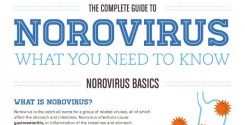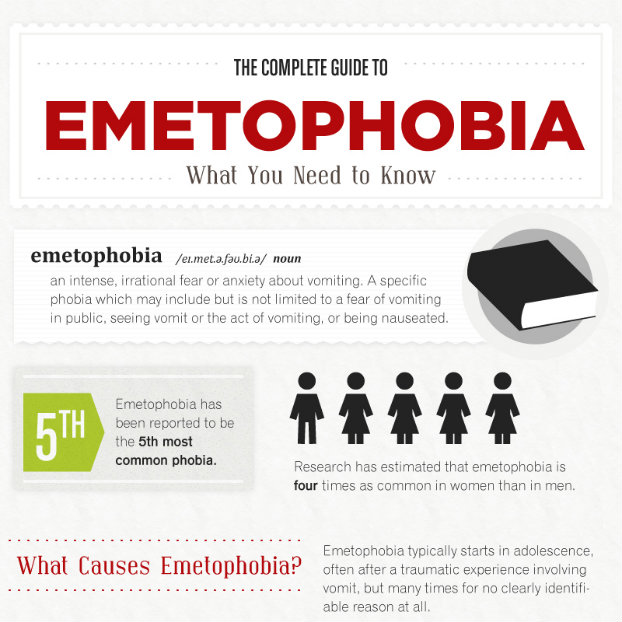Resources and Help for Overcoming Emetophobia
Join Us Online
-
The Complete Guide to Emetophobia [INFOGRAPHIC]
January 2, 2013 -
Feature on People Suffering from Emetophobia
June 5, 2013 -
Obsessive-Compulsive Disorder and Emetophobia
July 9, 2012 -
Trypophobia: Surprisingly Unsettling Fear You’ve Never Heard Of
September 6, 2013 -
Incredibly Long List of Phobias
July 22, 2012
-
What Is It Like to Live with Emetophobia?
December 5, 2014 -
Do You Have Depression, or Could It Be Something Else?
November 12, 2014 -
How to Master Your Stress Today
October 29, 2014 -
Living with (and Recovering from) Emetophobia
September 2, 2014 -
Fear Vs. Phobia: How to Tell the Difference
August 12, 2014
Important Disclaimer
All material provided on this website is provided for informational or education purposes only. No content is intended to be a substitute for professional medical advice, diagnosis, or treatment. Consult your physician regarding the applicability of any opinions or recommendations with respect to your symptoms or medical condition. The author is not a therapist, psychologist, physician, or other mental health or medical professional. Customer names or locations may have been changed to preserve anonymity. Your individual results may vary and are influenced by many factors.
FAQ’S & CUSTOMER SERVICE
Our friendly customer service representatives are available Monday - Friday from 8AM to 3PM EST to answer any questions you have from our online help desk. Customer service inquires will be answered within 24 business hours. For the fastest answer to your question, please click here to view our FAQ's. In the unlikely even that your question is not answered by our FAQ, you may submit a customer service request by clicking here.
Please contact customer service for returns processing.
Evolution 2 Media, Inc.
538 W 21st St #27517 Houston, Texas 77008-3642
1-800-256-9148
ADDITIONAL INFORMATION
Copyright ©2019 Emetophobia Recovery System —

















